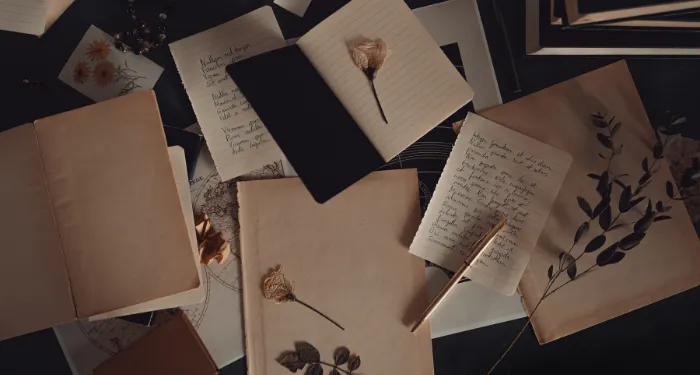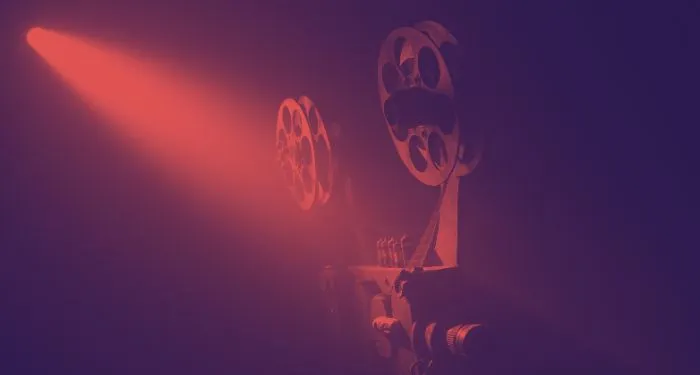Leo Carey is a senior editor at The New Yorker—in fact, he is my editor. He grew up in Oxford, England, where he attended the same school my children went to, St. Barnabas Primary School, and then the University of Oxford, where he studied English Literature. He moved to the US in 1997 and shortly after joined the staff of The New Yorker, where he has been for twenty-five years.
Leo and I have worked together for just over six years now, and Leo attributes our productive relationship to the fact that he is “pathetically accommodating.” I attribute it to Leo’s great wit and wisdom, his patience, his compassion, and his ability to think with impressive clarity about how any piece of criticism or reportage moves.
At least once a year, usually right before we finish working on an essay, I have a completely bizarre dream about him. In our final episode of the Art of Editing, we break from our usual form. I offer Leo seven of my most memorable Leo dreams, and he interprets them to reveal the deep, dark psychodramas of the writer-editor relationship.
The first dream is called “Clarity.” My contact lens has slipped to the back of my eye. I ask you for help. You reach into my eye and pull out a perfectly intact blue Concord grape.
Well, I think first we should edit the title. I don’t think the first writer who put pen to paper necessarily expected or wanted to be edited, but it can happen that you write something and you’re not sure and you’re not satisfied. Then it’s useful to have someone to bounce some ideas off. I think if there is a value to the editorial role, apart from just fixing things that are crap, it is that the person who is putting the picture on the wall is not the person who can see if the picture is being put on the wall straight. Writing is such a concentrated activity, and it is possible not to fully understand the effect that your words are having. Also, if you’re writing nonfiction, you’ve just done a lot of study to become an expert on this thing that maybe you weren’t an expert on before, or maybe you’re writing about something you know about intimately and it’s very hard to imagine the average person who’s going to be reading this. What do they know? Where do I lose them? You maybe have created an expectation for the piece in something you write early on, and you don’t quite realize you’ve touched off this expectation in the reader that later isn’t satisfied.
The job as an editor is to read both as an expert and quite naively. If it’s a subject I happen to know about, I try not to draw on my knowledge. I mean, it will help in some ways. You can quickly see if someone explains something poorly. But I often feel that when I don’t know about what someone’s writing about, that can actually be quite useful, because I’m probably in the same position as the reader. What business have you to go around claiming that your response is the response of an average reader? You have some sense of it.
But back to your eye dream. If you’re a writer who is used to being edited, you write with the expectation of being edited, and so as you’re sending off a piece, you’re thinking, “What’s my editor going to think?” From there, it’s quite a short step to when you have a problem, you might want to talk to your editor. And believe you me, that doesn’t end with textual problems. Occasionally, people come to you with a real-life thing, which is soluble. The text, unfortunately…
So you think, there’s something wrong with my eye. Can Leo help? And the thing about the solution you receive from me is not quite what you expected. That’s the obvious thing. It’s more succulent than what you expected. Someone else has a bunch of different ideas and they vibe with yours. There’s a little energy given off when that happens. Incidentally, the same thing should happen in reverse. It’s very rewarding as an editor when you identify a problem, give a suggestion, and then the writer doesn’t do it but the thing they do is better. That’s really fun. And that happens, often and occasionally, in ways that sort of end up being really quite memorable.
So, what should we call this dream instead of “Clarity”?
Now we can call it “Clarity,” because I’ve explained it.
Dream two is “The Party.” You’ve invited me to a party at your apartment. When I arrive, you ask if I wouldn’t mind preparing a bowl of chips. I go to the kitchen, prepare the bowl, and when I come back to the living room, you slap the bowl out of my hand and shout, “I asked for popcorn!”
Very good. Well, I suppose that’s the editor on a bad day. In a way, it’s to do with the second half of the contact-lens-grape problem. The reason the editor exists is because the writer is fallible. But if the writer is fallible, it follows that the editor must be too, because they’re usually human as well, right? If the editor is fallible, then there has to be a right of reply for the writer. Sometimes as an editor you’re like, Oh, this bit is boring. Why don’t you try this? And the writer goes off and does it, and then they come back and you think, Oh, God, no, I like the way you had it.
It also could be that the contact lens turns into a grape, and then into a bowl of chips, and then into popcorn. It’s like you’re always asking for something else. You’re always considering options. There’s a limitless number of ways that a piece could go, and you have to somehow pick the best one. So, you’re thinking: What is there? What could be there? A very useful question for an editor to ask is: Was there anything that you almost put in the piece? I’m thinking of a particular piece about the science of pain, and I wasn’t quite satisfied with the ending. I asked, “Was there anything you didn’t put in the piece?” And the writer said, “Well, actually, it seems that some of these pain receptors, or whatever they are, have the same neurological shape as the pleasure receptors.” And I was like, “Obviously, that’s the ending.” It just comes in from a different angle. It’s not the final nail in the coffin that we’ve been hammering shut but a little vampire escaping from that coffin.
I have a question about pleasure and pain. One of the things I love about working with you is how willing you are to fuss for fifteen to twenty minutes over a single word with me. What might read like a nightmare—the party, or the contact lens to a grape to a bowl of chips to a bowl of popcorn—could actually be a source of pleasure for the person who wants to work on a single word until they find the right one. The flip side is that it can also be immensely frustrating. I got you the chips and then I got you popcorn, and then you asked for Fritos, and now Doritos, and will you ever be happy, goddamnit? Are there some writers who want the endless fussing and some who can’t handle it at all?
I’ve only worked at this one place, and it’s not an absolutely usual place. The writers I work with run the gamut from people who write very instinctively and it’s great but messy, and then the tidy people who really just grind out one tiny gold leaf at a time. There is almost no one who is indifferent to words. Different writers have a different amount of tolerance for, say, repeating a word. Some people think it does the job. Anthony Lane, who’s immensely painstaking, will say, “Unfortunately, we had that on page two.” I’m like, It’s fine. It’s fine. That’s far enough away.
The other thing about fussing for the right word is that usually it’s not just the word but a slightly larger thing. Sometimes it is just a word, and in that case, you should probably go make a cup of tea and it will come to you later. You have a block, because there are other words in the way. I don’t love the sort of writing where the writer’s too in love with their prose—I want it to be in the service of something. But I also don’t want the prose to be a turgid experience.
I remember you once said that writers think they need 90 percent of their prose to be exceptionally distinctive, but they only need 10 percent. Am I quoting you correctly?
I don’t know about the quote, but that’s something I think, so I probably said it. It’s The New Yorker, and for whatever reason, it’s got this big reputation. People do feel they have to give it their best shot. Sometimes we approach people and say, We’ve liked your pieces elsewhere. Why don’t you do one of those? You’d be surprised how often they don’t do that. There’s this story about Glenn Gould practicing at the piano and he starts to think about how he actually does it, and finds he can’t play anything at all. There’s all this absorbed knowledge that he needs to not be thinking about. If you thought explicitly about how to stand up and walk across the room, you would probably find yourself unable to do it. When people try hard, it’s not always their most natural thing.
The other side of it is showing off. When you’re researching a subject for a piece, occasionally you’re having a brilliant idea, and you think, Oh, my idea is brilliant, I’ll write that down. So you have a list of brilliant ideas and you’ve forgotten how many words you have to use to explain stuff—just to say what books someone wrote, and in what order, and when they died, and who they married, and who their influences were. You have to sort of just do that. It’s great when someone manages to find a way to take the boring exposition and have 10 percent fun. There are occasionally moments when someone manages to make exposition seem new, often with a sort of summary that just puts everything into very sharp relief.
An example that I remember is a piece by Elif Batuman about the Ottoman Empire and how in Erdoğan’s Turkey the Ottoman past is being prioritized. There was all sorts of editing we did, but there was one sentence, at the beginning of the history section, that didn’t change the whole way through. I’ve got it here.
“The Ottoman Empire was founded in 1290…”
Good.
“…by a Turkoman tribal leader called Osman, and survived until the First World War. Encompassing, at one point, territories from Algiers and Athens to Zabid and Nové Zámky, it nonetheless lacked many of the features that we associate with empire.”
That’s so good, to have that assonance and alphabetization and then lead into the idea that it’s an empire, but not quite an empire. Note that the sentence starts with something very plain, not like, Look at me. But suddenly, by the end of it, I’m listening harder.
This third dream is called “My Eyebrows.” I wake up and go to my bathroom. When I look in the bathroom mirror, I see that half of each one of my eyebrows has been shaved off. When I leave the bathroom, I find you standing in the hall with one of my kids on either side of you, all three of you simultaneously point to one another and say, in unison, “He did it.”
I mean, there’s a shared responsibility, right?
You have no responsibility for my children.
But as an alumnus of the same primary school, I feel there is a certain responsibility. I remember Tom Bissell, a lovely writer, wrote a piece for me on a video game designer, and later wrote a book on video games that was reviewed in the Times. He told me, Oh, that sentence that the Times quoted, you wrote that sentence. For the class I’ve been teaching, I go back through edits, trying to work out what I did and why, and what they did. I don’t think it’s that easy to say. With something like a title, I can think of titles that the writer came up with, titles that I came up with, and times when I was stuck and some other editor had a good idea. Is that what the dream is about?
I also think it’s about how writers always want to write longer than they need to.
Oh, it’s about cutting your eyebrows. I see.
Shaving.
Shaving, yes. I would say that as writers get more practice, perhaps they do start to write longer. But also it’s hard for a writer not to feel that if a piece ran long, it was liked better; if it’s taken up more of everyone’s time, it must have been more important. If you think about New Yorker pieces you’ve really loved, are they always the longest ones? I don’t know. For me they’re not. I think there’s nothing worse than something that’s trying to be longer than what’s there. Of course, everyone’s done enough work that the thing could be twice as long. But writing is about choosing. You have all these possibilities, and gradually you have to not dwell. There’s a Thomas Mann phrase where he says something like, You have to stop dwelling in this world of potentiality and actually produce a work. That means narrowing things down.
One of my bêtes noires is when people say something ambiguous and I’m like, I couldn’t tell if you meant this or that. And they say, It’s kind of both really. I’m like, No, no. That’s like a driver who has taken his hands off the steering wheel. I won’t allow that. There’s a writer who loves the phrase “by way of,” and I told him that I don’t love “by way of” because I feel like the causation is not clear. And he said, Oh, that’s why I’ve always liked it.
When I texted you that dream, you texted back, “Generally, in the transference relation, the writer imagines the editor as a parent. So, it’s a real step forward to imagine the editor as your child.”
Very good.
The fourth dream is “Being Tucked In.” We are closing a piece and we are on a dirty sidewalk in Brooklyn. I am feeling very tired, so I say I can’t do this anymore and lie down. You put a nice fluffy white blanket over me. But all these other people keep lifting the blanket and shoving computers with the screens at full brightness in my face, so I get up and walk home to Connecticut.
If you’re working as an editor at an institution, you come to know that institution quite well, and you’re often mediating a discussion between a writer who knows that institution less well and other people at your institution who don’t know the writer that well. Misunderstandings can arise. The three inputs made by the institution that aren’t from me are the fact-checkers, the copyeditors, and some other reader, probably senior to me, who maybe has some problem that I didn’t have or had not thought of, or one I’m not sure I agree with. But, there is an aspect of collegiality and respect for seniority. Sometimes the writer is horrified by something that comes their way, and that might be from the fact-checker. I was reading back through a variety of pieces today trying to find correspondence, and there’s some with a writer who’d written on a bridge scandal, some bridge scam—
The card game or a physical bridge?
The card game. And this fact-checker, a very interesting person who wrote a book subsequently and has a certain profile, probably wasn’t that astute as a checker. He had heard from the lawyer that the piece seemed to be alleging wrongdoing. The lawyer had said, “You’re not at all even-handed.” The checker tells the writer, “You know both sides of the bridge fight, and so I think we have to be doing that.” And then the writer sort of spines out, like a cat with its fur up.
Similarly, a typical bête noire for writers is if they write “Picasso,” and the copyeditor wants to make it “Pablo Picasso.” If you’re looking at the proof together, you’re like, Oh, this little question mark on the proof is just a suggestion. It can’t be wrong to have suggested it, right? There are certain things that it’s obscene to suggest, but within the world of text, it’s probably fine. But if a suggestion is a bit flat-footed, the writer might start losing respect. Writers are the kind of people who will start to lose respect. So, it’s quite important to heed both sides. You can’t be like, Oh, sorry, my colleague screwed up, nor can you say, Sorry the writer is being so unreasonable. You need to be a peacemaker and find common ground, and that’s how you proceed. This applies to text. It can also apply to things like whether a source is named, whether we reach out to someone mentioned in the piece with something they’re not going to like. There are all sorts of issues that can be very contentious.
There’s something about the run up to publication that is really nerve-wracking, particularly for the writer. I do this every week. The checkers do it every week. The writer does it less often, and their name is on it. In a piece that I wrote, there was one fact I was unsure of. We did get it in the end, but I just had this terror of this incredibly boring, trivial fact being wrong and a catastrophizing sense of all the career consequences that could ensue. So, you have to respect the feeling of overwhelmedness that the writer can have and guide them through the process. Anytime there’s a new writer, I say, “You’ll be getting this proof. You’ll be getting that proof. At this point, we do this. At this point, we do that.” It’s just really helpful to describe the processes. Otherwise, it’s like, Wait, where’s this enemy fire coming from? A writer who came from the Washington Post said that when there are too many cooks in the kitchen, it is like “drive-by editing.” It happens often, particularly when a writer is new, that they’re not doing it quite our way. It’s almost like the white blood cells in the institution are like, What is this foreign body? You have to find a way through that.
Dream five is called “Jennifer Lopez.” We are in a pub in England. The bathroom door keeps flying open to reveal Jennifer Lopez in her green Versace dress from the 2000 Grammys. Each time it does, you begin to cry.
Wait, you’ve missed a bit, haven’t you?
Have I?
Let’s have a look.
Oh, I’ve texted you this one. Did I edit it?
Editing, typical.
The part I left out is that you cry “for your parents.”
Which is very diplomatic. I think it’s interesting that you edited the dream. You edited it for personal reasons—I don’t want to get into that in this public forum—but I think the crying is now rather under-motivated. I think it was a great dress, right? What’s to cry about?
That she can’t fit into it anymore.
That it’s no longer 2000. Obviously, you’re new to editing, fine, but I’m not sure how I interpret this dream. I need a clue about what aspect of the process you’re going for.
I had this dream immediately after Radhika Jones was a guest on the podcast. I assumed it was about celebrity and mass culture. But maybe I’m misreading my own dream.
I suppose the funny thing is my parents probably don’t know that the Grammys exist. They certainly wouldn’t know that Jennifer Lopez or Versace exist. Freud says that if you’ve got wolves in a tree looking at you, it’s because you saw a primal scene. Everything’s flipped.
I think the nice thing about The New Yorker is that we could totally run a Vanity Fair piece if we wiggle a bit to the right. If we wiggle a bit to the left, we could run a Foreign Affairs piece or New York Times piece. We wiggle a bit in another direction and you could be writing the sort of essay that may be in a small literary review or is basically a book. And we also are writing political coverage that breaks news the same way that The Post and The Times do, so it’s nice to be in that central position. I think that is one of the magazine’s strengths.
There was a time when the glossies were these huge cash cows that we looked at a bit like, Come on, get your act together. But now there are fewer cash cows, and this magazine actually turns out to be very viable, and it’s in a central position. It can move in lots of ways, and that’s because it is classic general interest magazine. I’m often surprised when people read it. That is, I’m not surprised that anyone reads it, but sometimes there’ll be someone who’s like, “Oh, I subscribed,” and I wouldn’t necessarily have thought they would.
Do you feel like it’s gotten less glamorous for you compared to when you arrived in New York at twenty-two? Megan O’Rourke claims that you sat outside of Tina Brown’s office, and that Meghan had to babysit you for your first four months there.
I grew up in England, and it was a bit unusual to have been interested in The New Yorker at that time. In the 1990s, when I was living as a student in Oxford, there were two copies for sale at Wendy News on Broad Street. That was it. That was the circulation. I think a lot of people arrive at The New Yorker from nice, middle-class American backgrounds. Their aunt can’t believe how amazing it is that little so-and-so is there. My aunts had no idea what I did. I’d grown up in one city as a faculty brat. It didn’t feel to me at the time like I was going to spread my wings.
I came in during the last fat years of the industry. I remember the town cars lined up outside the offices, the salaries flung around, free things, the parties were fancy. It seemed to be pretty viable, so I thought, I’ll stick around. Then I rose while the industry went down, leaving me approximately at the same level. But I don’t feel like I ever quite got off on the glamor, because, of course, I was determined not to be impressed.
That’s very English of you.
There was a moment when John Updike praised something I’d written. I thought, Okay, I’ll keep that. Look at little old me. You do get to meet well-known writers. But I’m absolutely smitten when I meet a famous classical musician or one I just happen to admire. That’s amazing to me. Whereas, if you work with someone all the time, it’s less so. My background was very literary, so I probably never had quite the same pedestal for The New Yorker as other people, which on the one hand sounds very entitled, but on the other hand, I didn’t give myself much of a pat on the back, thinking I was amazing for having gotten there.
Dream six is called “Shark House.” I’m texting you about the suicide piece you’re editing. You text back that you’ve just quit the magazine and decided to become caretaker of the Headington Shark House, and finally, your parents approve of you.
The Shark House is a perfectly ordinary row house in Headington, which is the suburb of Oxford where my parents live. In the 1980s, this guy called Bill Heine put on his roof this fiberglass shark that looks like it’s just crashed into the house, as a sort of art piece, conversation piece. People were up in arms, then it became a thing, and now it’s probably a protected building.
There was something my dad once said that I’ve always thought was so central to editing. It came up in the first question about the contact lens and the grape. I was cramming for my Oxford entrance exam, and I learned all of Keats’s odes. I just got them in my brain, and I was saying to my mum, “God, it’s really weird. ‘Ode to Autumn’ doesn’t have anything about fallen leaves. That’s not in the canonical autumn poem.” And out of the other room, I heard my dad said, “That’s very good. It’s always very good to see what’s not there.”
That phrase stuck with me as the epitome of editing. You can think of it in a boring way, like a checklist. But what are the options if, say, the person being written about in a profile wasn’t as interesting as you hoped? They weren’t that cooperative. They didn’t really say anything that interesting. What else you got? What can you bring?
Last one, “Cleveland.” You wanted me to write a review of Brasilia with a specific focus on its food. But after a long, long phone call during which I told you about a Rachel Cusk story in which she goes to Brasilia and meets a man from Cleveland, we decided I’d go to Cleveland and review a taco stand instead.
After I got promoted from an assistant, the first piece I edited was about the Cleveland Orchestra by a bloke called Charles Michener, who’s from Cleveland. The copyeditor was from Cleveland, and so was Mary Norris, the New Yorker’s “comma queen.” I’ve not edited a piece about Brazil at all. I think I need guidance.
I wonder if it’s about communication. You and I speak on the phone for hours at a time about what we are and aren’t going to do.
That’s important to know about writers: who it’s best to write a memo to, who it’s best to talk things through with on the phone. There are some people who really want to see every change, and there’s no point in hiding stuff from them. There are people who really like to work in Track Changes, people who like to work on paper, people who don’t like to work—all kinds exist. There are also people who really want you to give the answer, and people who are too proud to accept such a thing. With them, you should never say to do this or that. You say, “You know, I almost wondered … probably not … but if you thought of it like this …” If you soft-pedal the suggestion, that can be quite useful.
I’m reasonably sanguine when I’m talking about it, but in the moment of editing, I get very frustrated by things that aren’t working. I get quite angry, at the writer, at the text, at the invention of writing. It’s like, I’ve got fifteen reasons why that’s a bloody stupid choice, but of course, if I were to come out, guns blazing, with all the reasons you can’t do it, that would be awful and humiliating. Always, always look for a solution. It’s like ping-pong, right? When someone rejects an edit of mine, I make it a point of honor never to just put it back on. The right answer is always the third thing that neither of you has thought of yet.
It’s like athletes and trainers. Absolutely stellar managers often weren’t stellar athletes. They are different roles that produce something that belongs to neither. It’s going to be given to all these readers, and they’re going to make of it what they will. The more possibilities you can think of—“If you didn’t go for that, what about this?”—and the more you demonstrate that you”re willing—“I’m not wedded to this idea of mine, but what about this?”—then it starts to model a kind of behavior.
The other metaphor I’ve heard you use is that the writer is a horse and the editor is the jockey.
A rather senior figure came up with that metaphor. There’s an idea that writers can be kind of nervous, right? If you move suddenly, you can startle a writer. She might shy and run away, and maybe break a leg, and have to be put down at the side of the track. The writer can be like that. The editor has to be solid, not have personality, and not be high maintenance.
I looked it up, and jockeys have a really high suicide rate. They have short careers. There’s a lot of injury, which means there’s a lot of painkiller addiction. They’re riding these expensive beasts owned by rich people, and they don’t get much of the prize money. No one remembers who rode Seabiscuit.



















 English (US) ·
English (US) ·